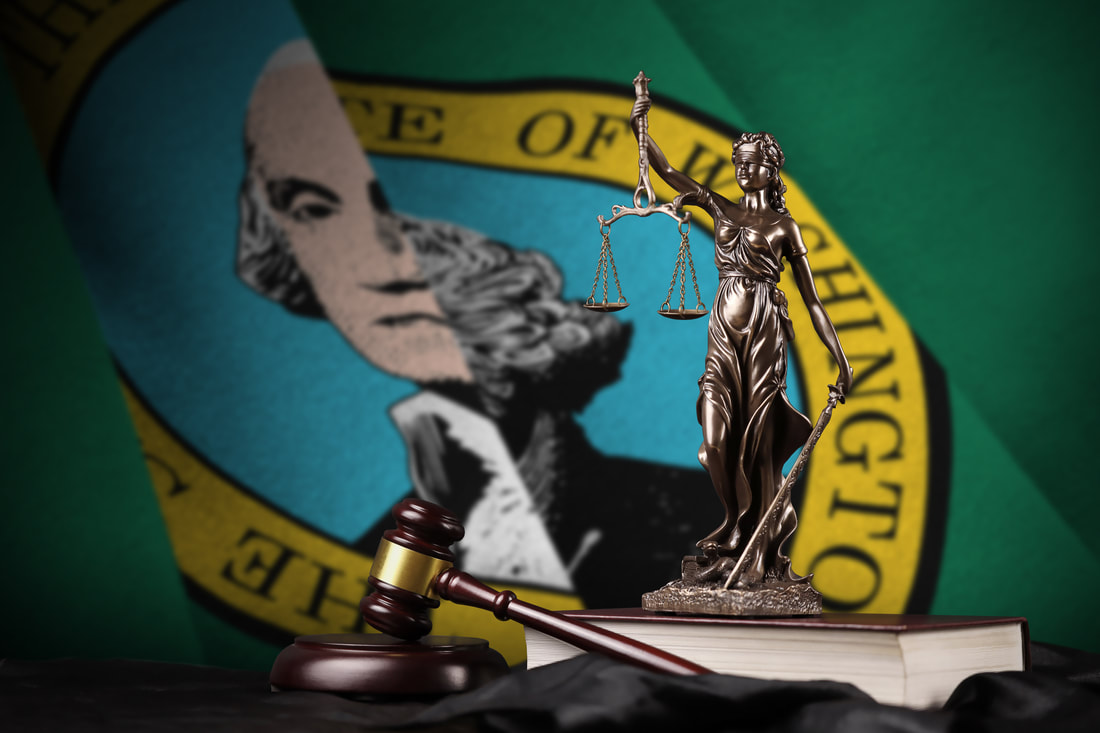|
The state of Washington's Supreme Court has approved plans for law school students and graduates to become lawyers without taking the bar exam, forging alternative pathways a state task force has recommended to help make legal licenses more accessible to people of color and other historically marginalized groups. The state's high court issued a pair of orders Friday adopting the Washington State Bar Licensure Task Force's proposal outlining a process for aspiring lawyers to skip the bar exam, either by working as a law firm intern during law school or as an apprentice to an attorney afterward — in addition to completing other coursework requirements. According to a news release issued by the state court system Friday, Washington is the second state in the country, after Oregon, to officially approve a path to legal licensing without the bar exam. Once the state court system has worked out the details of implementing the plan, law school students will be able to graduate practice-ready by completing 12 qualifying skills credits and 500 hours of work as a licensed legal intern, as well as submitting a portfolio of that work. Law school graduates will have the option of bypassing the bar exam by participating in a six-month apprenticeship under the supervision of a qualified attorney and completing three standardized courses during that time. The plan will also provide an alternative path for those who are enrolled in a non-law-school course of study and participating in the state's Admission and Practice Rule 6, or APR 6, law clerk program, which already allows participants to work and study under the tutorship of an experienced lawyer or judge instead of going to law school. New standardized educational materials and benchmarks will be established for APR 6 clerks who seek to bypass the bar exam, given that the current program allows tutors to create their own curriculum. To skip the bar exam, APR 6 participants would also have to complete the 500-hour internship requirement, which could be done at the same time as their clerkships. The task force was chartered in November 2020 by then Chief Justice Debra Stephens to study potential bar exam alternatives amid questions about the traditional test process, which had been adjusted due to the COVID-19 pandemic. After gathering data and testimony from scholars and other experts, the task force unveiled its proposal to the justices last fall. Its final report, attached to the high court's Friday orders, concluded the bar exam "disproportionately and unnecessarily blocks historically marginalized groups from entering the practice of law" and "is at best minimally effective for ensuring competent lawyers." "These recommendations come from a diverse body of lawyers in private and public practice, academics, and researchers who contributed immense insight, counterpoints and research to get us where we are today," said Justice Raquel Montoya-Lewis, a task force co-chair, in the news release. "With these alternative pathways, we recognize that there are multiple ways to ensure a competent, licensed body of new attorneys who are so desperately needed around the state." Now that the recommendations have been adopted, the court will partner with the Washington State Bar Association on an implementation plan and timeline — a process that will likely include the outreach and partnerships with other legal professionals and institutions, said the news release. The state Supreme Court also approved the task force's recommendation of adopting the National Conference of Bar Examiners' NextGen bar exam when it's rolled out in July 2026, a revised test that's expected to require less memorization, cover fewer topics, focus more on real-world application of the law and shift away from the current exam's emphasis on speed. The new version of the exam is also expected to encompass a broader range of question types, including essay, short answer and multiple choice. Additionally, the state's high court agreed to lower the minimum bar passage score for the existing exam from 270 back down to 266, which was temporarily the cutoff during the pandemic. Seattle University School of Law Dean Anthony Varona, who co-chaired the task force with Justice Montoya-Lewis, said in a statement Friday that she's "delighted but not surprised" that the state's high court approved the task force recommendations. "We are fortunate in Washington to have a Supreme Court that time after time has used innovative approaches to correct injustice and expand the law and legal services to meet the needs of the underserved and marginalized," Varona said. Several other states are also exploring alternatives, including California, where the state bar association endorsed a pilot program last fall that could allow law students to become lawyers by submitting a portfolio of legal work undertaken with supervision over roughly six months.
0 Comments
Leave a Reply. |
HISTORY
April 2024
Categories |
© Walk 4 Change. All rights reserved.


 RSS Feed
RSS Feed